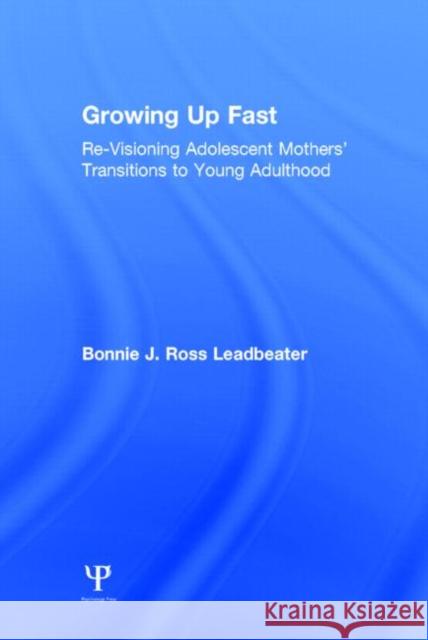Growing Up Fast: Re-Visioning Adolescent Mothers' Transitions to Young Adulthood » książka
Growing Up Fast: Re-Visioning Adolescent Mothers' Transitions to Young Adulthood
ISBN-13: 9781848725713 / Angielski / Twarda / 2014 / 282 str.
Growing Up Fast: Re-Visioning Adolescent Mothers' Transitions to Young Adulthood
ISBN-13: 9781848725713 / Angielski / Twarda / 2014 / 282 str.
(netto: 721,53 VAT: 5%)
Najniższa cena z 30 dni: 654,86
ok. 16-18 dni roboczych.
Darmowa dostawa!
The first edition of "Growing Up Fast" attempted to counter the stereotype of poor, minority adolescent mothers and describe the diversity of their educational, work, parenting, and relationship experiences. The volume followed a strengths-based approach to understanding why some mothers appeared resilient to the stresses of early parenting, compared to their peers, and what obstacles undermine resiliency for some of these young women. We hear their stories in their own words. We also see how many disadvantaged mothers go on to succeed in school, work, and parenting while avoiding many of the risk associated with teen parenting . The research is based on a six-year study of 120 young disadvantaged mothers and their children from New York City. It uniquely combines the analysis of longitudinal questionnaire data with qualitative analysis of extensive interviews conducted with these women focusing on the first six years after their child was born. A past winner of the Society for Research on Adolescence best book award," Growing Up Fast" is a fascinating study of human resilience that will continue to be reocognized for its contribution to individuals involved in program development and policymaking with teenage parenting.
A new introductory chapter to the book suggests that we can look at the previous findings through a new lens that emphasizes not only the diversity of outcomes for young mothers and the sources of their strengths, but also asks what we can learn from these women about supporting their educational and work goals, as they transition to adulthood. New attention to emerging adulthood shows that this is a critical stage of life when the foundations for health and healthy life styles are laid down. Developmental tasks of this phase include building the capacity for financial and residential independence through post-secondary education and job training, and establishing stable sources of support from parents, romantic partners, and peers for all youth. Leadbeater addresses the societal changes that make these tasks particularly salient for young women and focuses attention on how we can support youth who make this transition with children.











